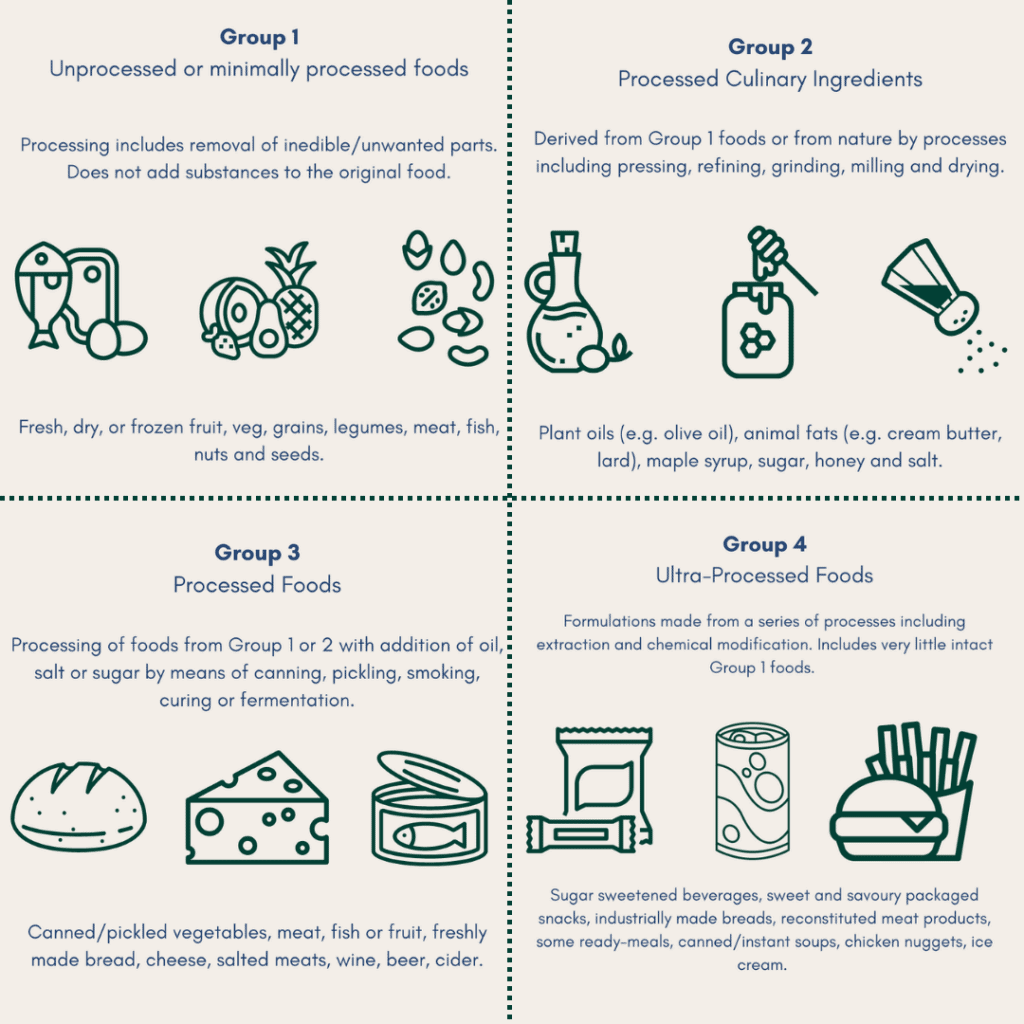The dangers of ultra-processed food
In today’s fast-paced world, convenience often takes precedence over health. With the rise of ultra-processed foods over the last few decades, our diets have undergone a dramatic shift. These products, typically loaded with artificial additives, preservatives, and unhealthy fats, are reshaping our food landscape and, consequently, our health. This blog post aims to examine the dangers of consuming ultra-processed foods and the impact they have on our well-being.
Table of Contents
Defining ultra-processed foods
Ultra-processed foods are industrially manufactured products that undergo numerous stages of processing, resulting in a final product vastly different from its original natural form. These foods often contain little to no nutritional value and are rich in refined sugars, sodium, and unhealthy fats. Examples include fast food items, sugary snacks, soft drinks, and pre-packaged convenience meals. The Norwegian Food Authority (Mattilsynet) state that as a rule, if a food product contains more than five ingredients that you would not expect to see in a normal kitchen, it should be considered ultra-processed.
The nutritional void
One of the primary dangers of consuming ultra-processed foods is their lack of essential nutrients. During processing, these foods lose much of their original nutritional content, including vitamins, minerals, and fibre. As a result, individuals who rely heavily on ultra-processed foods are at risk of developing nutrient deficiencies, leading to a range of health problems, such as weak immune systems, fatigue, and impaired cognitive function. We often talk about the fact that seaweed is the most nutrient-dense plant on the planet; eating just a small amount each day provides your body with nutrients that are essential for its healthy function.
Weight gain and obesity
Ultra-processed foods are often calorie-dense and low in satiety, leading to overconsumption and weight gain. The excessive intake of refined sugars and unhealthy fats wreaks havoc on our body’s metabolic processes, contributing to insulin resistance and an increased risk of obesity. Studies have shown a strong association between ultra-processed food consumption and higher body mass index (BMI), putting individuals at risk of developing chronic conditions like type 2 diabetes and cardiovascular disease.
Impact on cardiovascular health
The negative impact of ultra-processed foods on heart health is a growing concern. The excessive amount of sodium in these products contributes to hypertension, increasing the risk of stroke and heart attacks. Moreover, trans fats, commonly found in ultra-processed foods, raise levels of LDL cholesterol while lowering HDL cholesterol, leading to atherosclerosis and a higher risk of heart disease. In addition to this, the poor nutritional profile of ultra-processed foods provides the consumer with less energy, which can contribute to a lower interest in exercise and the cardiovascular benefits that come with it.
Digestive disorders
The lack of fibre in ultra-processed foods can lead to digestive problems, such as constipation and irritable bowel syndrome (IBS). Fibre plays a crucial role in maintaining a healthy gut environment, promoting regular bowel movements, and supporting the growth of beneficial gut bacteria. With the absence of fibre in ultra-processed foods, the balance of the gut microbiome is disrupted, potentially paving the way for gastrointestinal issues and inflammatory conditions. There is even a line of biochemical communication between the gut and the brain, called the gut-brain axis. Your gut health has a direct and significant effect on your brain health. Did you know for example that 90% of the emotion-regulating hormone serotonin is produced in the gut? You can read more in this blog post about the connection between a healthy gut microbiome and brain health.
Cancer and other chronic diseases
Emerging research suggests that the consumption of ultra-processed foods may increase the risk of certain cancers. The high levels of additives, preservatives, and synthetic chemicals in these products are thought to be potential culprits in cancer development. Additionally, the pro-inflammatory nature of ultra-processed foods may contribute to chronic conditions like arthritis and asthma.
Psychological effects
Beyond the physical health risks, ultra-processed foods can have detrimental effects on mental health as well. Studies have linked a diet high in these foods to an increased risk of depression and anxiety. The consumption of refined sugars and unhealthy fats can lead to blood sugar fluctuations, affecting mood and causing irritability. Moreover, the addictive nature of certain additives in these products can create a cycle of dependency and overeating.
Conclusion
As the prevalence of ultra-processed foods continues to rise, so do the associated health risks. From the nutritional void to the potential to cause chronic diseases, the dangers of these products are becoming increasingly apparent. To safeguard our well-being, it is essential to be mindful of our dietary choices, opting for whole, minimally processed foods that nourish our bodies and support our overall health. By minimising the amount of ultra-processed foods in our diets and focusing on raw, nutrient-rich food products like seaweed, we can take significant steps towards building a healthier, happier, and more sustainable future.
